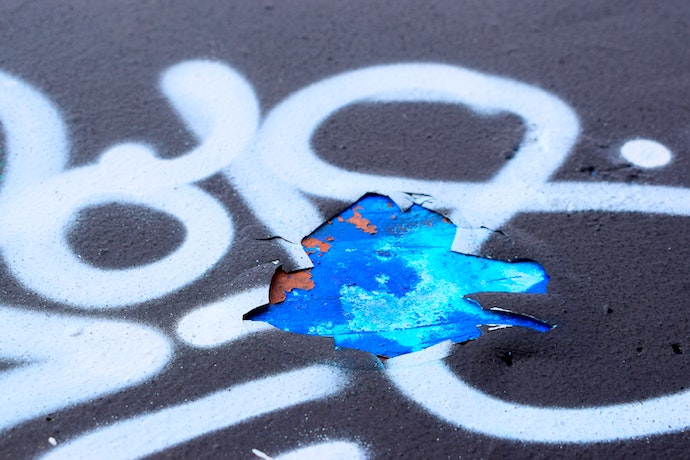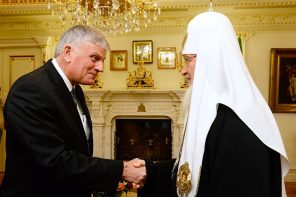I’m astounded by people who have the intellectual honesty, courage, and fortitude to examine their most deeply held beliefs. Not just examine, but challenge and reject beliefs that shape how their entire world is constructed—beliefs that they have been told were unequivocally true, by their most trusted sources, since they were little—beliefs that have been deliberately and systematically ingrained.
The reverse of indoctrination, the process of systematically pulling apart those beliefs is sometimes called “deconstructing.” And deconstructing is having something of a media moment. This gives me hope for our species because it shows that humans are capable of the intellectual courage and honesty that our species needs, but which is far too rare.
I’m not religious. I never have been. My mom insisted I question and challenge authority as a guiding principle. I never had to deconstruct. I don’t know what that is like. But I admire the hell out of it. I often wonder if I had been raised and systematically told to believe X, whether I’d’ve had the courage to shake off that mind-forged manacle.
Of course I want to say, “yes, without doubt,” but that undersells the pressures and defense mechanisms some religions, sects, and religious communities have evolved to keep people enthralled, a short list of which I include in The Founding Myth: “persecuting outsiders, shunning doubters, punishing interfaith marriages, punishing apostates (sometimes with death), homeschooling or religious schooling, gathering together to shout down the doubts on a regular basis, approving some texts and burning others.”
Given these roadblocks, I think that deconstructing and leaving one’s faith behind—or, at the very least, moving away from a narrow and authoritarian faith—is goddamned remarkable, a true intellectual achievement. Consider this my love letter to everyone deconstructing their faith, questioning the beliefs imposed on them as children. This grew out of a conversation I had with two exvangelicals on their delightful podcast, Go Home Bible, You’re Drunk, but I’ve known many who’ve deconstructed their faith.
Dan Barker has written several books on how he “lost faith in faith,” his journey from itinerant preacher to atheist activist—he also wrote the foreword to my book. Jerry Dewitt was a Pentecostal preacher who deconstructed; an intellectual odyssey that landed him in the New York Times. Barker and Dewitt helped launch The Clergy Project, a support community for clergy who no longer believe. Two and a half years ago the Clergy Project surpassed 1,000 members, both former and active clergy. That’s right, the preacher in your pulpit might very well be an atheist who doesn’t know how to escape.
The younger generation is even more open about questioning their faith and leaving Christianity behind. Whether it’s Rhett and Link, who used their platform to honestly discuss their deconstruction and deconversion; or Abraham Piper, son of influential pastor John Piper, who’s publicly deconstructing evangelical Christianity on TikTok; or Chrissy Stroop and Lauren O’Neal, who edited an eye-opening series of essays called Empty the Pews: Stories of Leaving the Church.
Not everyone who deconstructs becomes an atheist—Rhett & Link identify as agnostics and others consider themselves still Christian—but that’s what critics of deconstruction seem most worried about. I’ve yet to hear a thoughtful objection to deconstruction; instead I’ve heard believers giving voice to their own deepest fears. They’ve bought into a system that tells people life without that system is empty and meaningless.
Your journey, my deconstructed friend—your mere existence—is a threat to that system. People stuck in the system can see that you’ve left and are happy—perhaps happier. And that is threatening. That’s why we see so many snide comments from religious leaders chastising deconstructionists (I won’t link to them here, in my love letter, but they’re not hard to find. I’m not out to court controversy, but to offer support).
“Faith over fear” is a phrase we hear a lot these days. But how can a faith be strong if it’s never been questioned? What does it say about their belief that they’re so scared of others questioning it? While an atheist opining on the strength of faith may seem disingenuous, one of the most well-respected Christian theologians of the 20th century, Paul Tillich, agrees. He wrote that “doubt isn’t the opposite of faith; it is an element of faith.”
Blind unquestioned faith is not a universally shared value—even among Western Christians.
Last summer, I redid my fireplace. The mantle, the hearth, the hood, the wall—I took everything out, I ripped it down to the studs. Turns out, there was a leak in the roof that had rotted through several studs. Basically, the drywall had been holding it up. I was able to replace the rot with strong bones. Had I not done a bit of deconstructing, we’d have had mold or worse, a collapse.
If someone’s faith is true, if they’re correct and possess the one absolute eternal truth, no amount of doubt and questioning can hurt it. Truth can withstand questioning and deconstructing; error cannot. So deconstruction is only dangerous if there’s a possibility of rot beneath the surface. And in that case, deconstruction is only dangerous to the rot. When you rip it out, you can build back better. Believers who are confident in their faith should encourage everyone to engage in deconstruction. At the very least, the people who have the courage to question their religious beliefs deserve our respect, not mockery.
But all I see from the ostentatiously pious is fear and mockery of those willing to question with boldness. So I’d like all those deconstructing and all those who’ve deconstructed only to find a faith that was but shadow—I want you to know that you are loved. Not by a god, but by other people just like you. By the thousands, the millions of people who have left their religion behind. We are in this together. We are not divided by our religion, we are not to be winnowed and separated into wheat and chaff, or lopped off the vine to be burned—we are united by our shared humanity. And there is a lot of love in the secular world.
And if you’ve deconstructed to a healthier faith, free of authoritarianism, bigotry, sexism, and abuse—and if you’ve shed the tribalism and the need to impose and convert and separate the religious from the humane—you’re doing your part to better the world, too.
I think deconstructed exvangelicals in particular have a lot to offer. The sect they escaped from is the most toxic politically in the United States; the source—along with Traditionalist Catholics and conservative Mormons—of most of the authoritarianism, Christian Nationalism, and threats to our pluralist democracy. We can learn from their experience by listening to their stories.
There are many groups out there working to limit the power of religion in our government, to keep state and church separate, and to fight Christian Nationalism, that can amplify these voices and which exvangelicals could contribute to in other ways: the Secular Student Alliance, the Freedom From Religion Foundation, Black Nonbelievers, the American Humanist Association, Hispanic American Freethinkers, American Atheists, the Center for Inquiry, Ex-Muslims of North America, and many more, including hundreds of amazing local groups that offer a more intimate and familiar community.
Many of these local groups, such as the Atheist Community of Polk County (Fla.), are filling the community and service space that has been, until recently, monopolized by churches. The Polk atheists clean up roads they’ve adopted, fight for LGBTQ inclusion, feed and clothe the homeless, and raise money for charity. You can be “good without god,” have “fellowship without faith” and “community without church,” as Polk Atheists puts it. (Often, filling these spaces is quite literal. I spoke to the Atlanta Freethought Society on The Founding Myth book tour in their building, an old church on Church Lane.)
There are options, even if you’re not a public speaker or writer who wants to share your personal story and help others leave faith behind. But perhaps the biggest impact you can have is to simply live a visibly happy life free of toxic religion. To show others struggling with the conflict, and contradictions, and bigotry, and authoritarianism, and misogyny, and perversion of love and sex, that there is another way to live this life. Again, this will always be seen as a threat to those still in the faith because they see that a different life is possible.
I recently debated the existence of the biblical god with a Christian apologist. In my closing, I said words that I think are best to close out this love letter:
Certainty is not truth. Comfort is not truth. Faith is not truth. It’s scarier to think that the universe doesn’t care what happens to you. It doesn’t. But I do. And some of your fellow humans do too. We give life meaning. Do good. Love blindly. Practice empathy. Forgive readily. Create beauty. Learn with abandon. Challenge tradition and injustice everywhere. Above all, find something bigger than yourself to fight for. Make a difference in this life and in this world, because they’re the only ones that we get.





